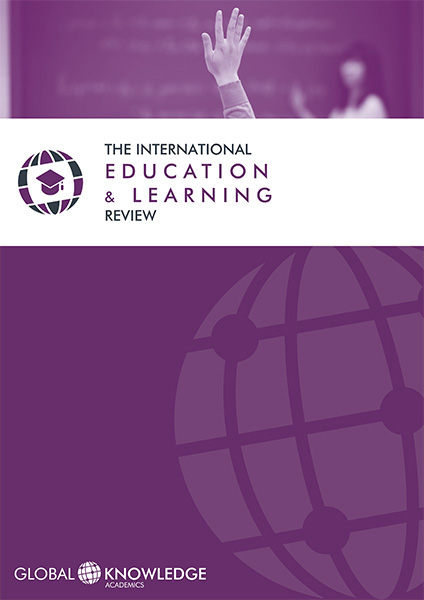Interest and motivation towards Mathematics: Most talented students’ self-perception
DOI:
https://doi.org/10.37467/gka-edurev.v1.1565Abstract
Since the beginning of schooling, students have been using elementary procedures to find solutions to problems that indicate how they structure their mathematical thought. One of Mathematics learning objectives is to get students to develop a flexible, agile and applicable knowledge that can be continually reinvented and adapted to new situations. Regrettably, this objective is not easy to reach and students frequently complain about the failures of mathematical education, mainly for the rejection sometimes inspired by this discipline, causing a negative attitude towards their own learning.
In this article, we will focus on the attitudes that students show towards Mathematics. For this analysis, we will use the results obtained through the process of construction of the “Batería de Evaluación de la Competencia Matemática” (BECOMA), an evaluation instrument that measures the mathematical competence of students in 5th grade of Primary Education, focusing on the variable Interest and motivation towards the subject of Mathematics from the student’s point of view analyzed throughout the process of validation of the set of evaluation tools previously mentioned. In the last section of this article, we will only focus on the results of the most talented students in Mathematics.
Downloads
Global Statistics ℹ️
|
311
Views
|
100
Downloads
|
|
411
Total
|
|
References
Bazán, J. L. and A. S. Aparicio. 2006. “Las actitudes hacia la Matemática-Estadística dentro de un modelo de aprendizaje.” Revista Semestral del Departamento de Educación 25 (28): 1–12.
Cueli, M., T. García, and P. González-Castro. 2013. “Autorregulación y rendimiento académico en Matemáticas.” Aula Abierta 41 (1): 39–48.
De La Rosa, J. M. 2007. Didáctica para la resolución de problemas. Andalucía: Junta de Andalucía.
[European Union] Unión Europea 2004. Puesta en práctica del programa de trabajo Educación y Formación 2010. Comisión Europea: Dirección General de Educación y Cultura.
Gil, N., L. Blanco, and E. Guerrero. 2006. “El papel de la afectividad en la resolución de problemas matemáticos.” Revista de educación 340: 551–69.
González, J. L. 2007. Competencias básicas en educación matemática. Málaga: Universidad de Málaga.
INEE (Instituto Nacional de Evaluación Educativa). 2008. PISA 2003. Matemáticas. Informe español. Madrid: Ministerio de Educación, Cultura y Deporte.
INEE (Instituto Nacional de Evaluación Educativa). 2013. PISA 2012: Informe Español. Volumen I: Resultados y contexto. Madrid: Ministerio de Educación, Cultura y Deporte.
Mato, M. D., E. Espiñeira, and R. Chao. 2014. “Dimensión afectiva hacia la matemática: resultados de un análisis en educación primaria.” Revista de Investigación Educativa 32 (1): 57–72.
Molera, J. 2012. “¿Existe relación en la Educación Primaria entre los factores afectivos en las Matemáticas y el rendimiento académico?” Estudios sobre educación 23: 141–55.
Muñoz, J. M. and M. D. Mato. 2008. “Análisis de las actitudes respecto a las Matemáticas en alumnos de ESO.” Revista de Investigación Educativa 26 (1): 209–26.
Palacios, A., V. Arias, and B. Arias. 2014. “Attitudes towards Mathematics: Construction and Validation of a Measurement Instrument.” Revista de Psicodidáctica 19 (1): 67–91.
Pan, I., B. Regueiro, B. Ponte, S. Rodríguez, I. Piñeiro, and A. Valle. 2013. “Motivación, implicación en los deberes escolares y rendimiento académico.” Aula Abierta 41(3, 13–22.
Pifarré, M. and Sanuy, J. 2001. “La enseñanza de estrategias de resolución de problemas matemáticos en la ESO: Un ejemplo concreto.” Revista de Investigación Didáctica: Enseñanza de las Ciencias, 19 (2), 297–308.
Tourón, J., L. Lizasoaín, M. Castro, and E. Navarro. 2012. “Alumnos de alto, medio y bajo rendimiento en Matemáticas en TIMSS. Estudio del impacto de algunos factores de contexto.” PIRLS–TIMSS 2011: Informe Español. Análisis secundario, 2, 187–215.
Downloads
Published
How to Cite
Issue
Section
License
Those authors who publish in this journal accept the following terms:
-
Authors retain copyright.
-
Authors transfer to the journal the right of first publication. The journal also owns the publishing rights.
-
All published contents are governed by an Attribution-NoDerivatives 4.0 International License.
Access the informative version and legal text of the license. By virtue of this, third parties are allowed to use what is published as long as they mention the authorship of the work and the first publication in this journal. If you transform the material, you may not distribute the modified work. -
Authors may make other independent and additional contractual arrangements for non-exclusive distribution of the version of the article published in this journal (e.g., inclusion in an institutional repository or publication in a book) as long as they clearly indicate that the work was first published in this journal.
- Authors are allowed and recommended to publish their work on the Internet (for example on institutional and personal websites), following the publication of, and referencing the journal, as this could lead to constructive exchanges and a more extensive and quick circulation of published works (see The Effect of Open Access).













